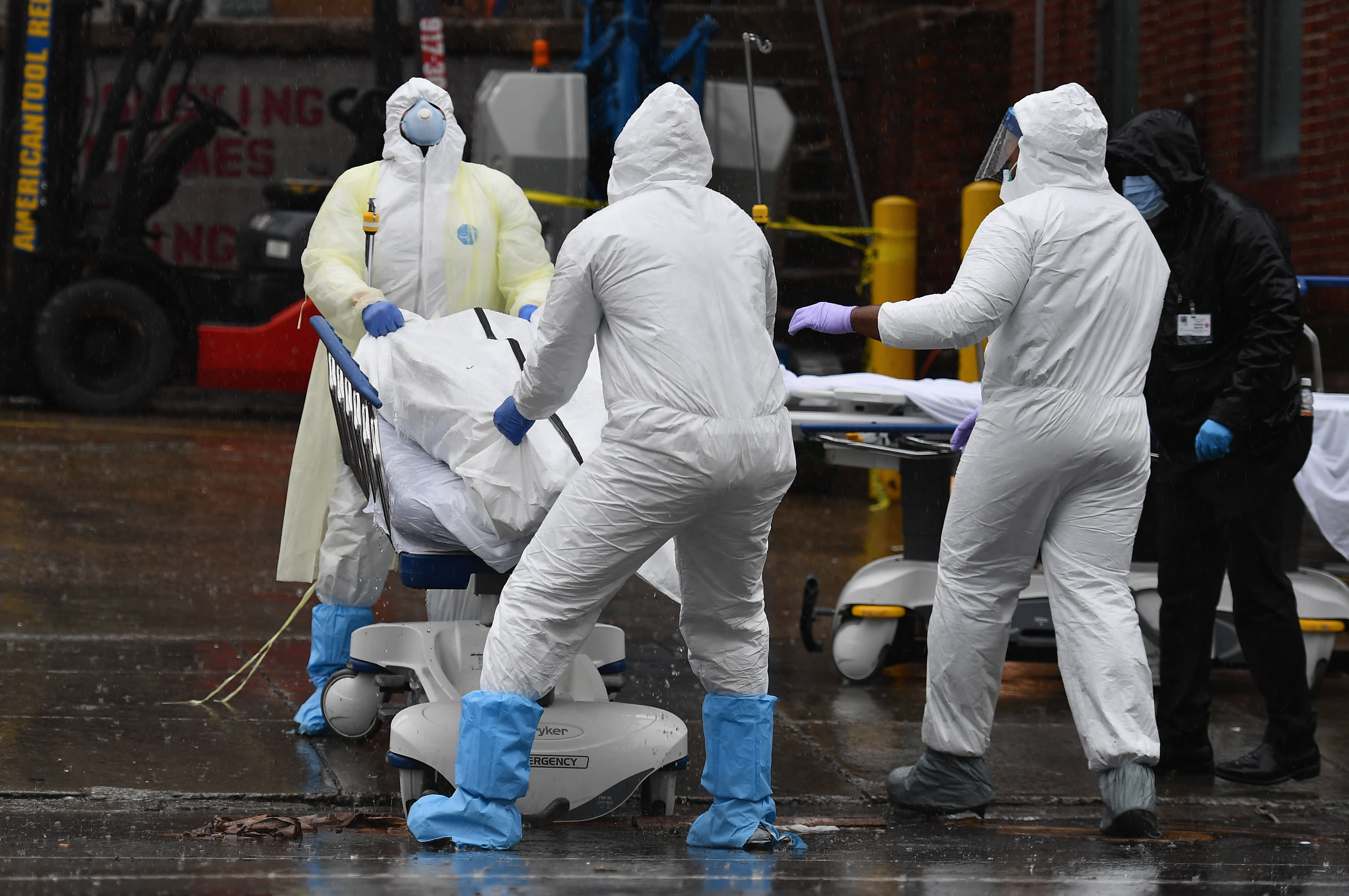Medical personnel move a deceased patient to a refrigerated truck serving as make shift morgues at Brooklyn Hospital Center on April 09, 2020 in New York City.
Angela Weiss | AFP | Getty Images
The World Health Organization cautioned world leaders Monday about reports that the coronavirus is “losing potency,” saying “this is still a killer virus” and thousands of people are still dying daily.
“We need to be exceptionally careful that we are not creating a sense that all of a sudden the virus has decided to be less pathogenic. That is not the case at all,” Dr. Mike Ryan, executive director of the WHO’s emergencies program, said during a press conference at the agency’s headquarters in Geneva.
WHO officials were asked about comments made by a doctor in Italy who said the coronavirus is losing potency and has become less lethal.
Alberto Zangrillo told an Italian public broadcasting company that “swabs that were performed over the last 10 days showed a viral load in quantitative terms that was absolutely infinitesimal compared to the ones carried out a month or two months ago,” according to a Reuters report.
Dr. Maria Van Kerkhove, head of WHO’s emerging diseases and zoonosis unit, said Monday that she had not seen the report but added there are measures governments can take to reduce and suppress transmission of the virus. That includes finding, testing and isolating Covid-19 patients, she said.
“But if we let the virus go, it will transmit. If we let the virus go, it will infect people and it will cause severe illness in about 20% of people,” she added.
The virus can also impact people differently, she said, adding it causes a range of illnesses consistently across the globe. It has a so-called R naught above 2, meaning the virus will “take-off” if we allow it to, she said.
“The important message is that there are things we can do to suppress transmission and to save lives,” she said.
The virus has infected more than 6.1 million people worldwide and killed at least 372,479 since it emerged about five months ago, according to data compiled by Johns Hopkins University. The United States has been hit the hardest, with almost 1.8 million cases across the country.
The epicenter of the global Covid-19 pandemic has shifted to South America, WHO officials said last month, as cases in Rio de Janeiro and Sao Paulo explode.
Last week, WHO warned that countries with declining coronavirus infections could still face an “immediate second peak” if they let up too soon on measures to halt the outbreak.
